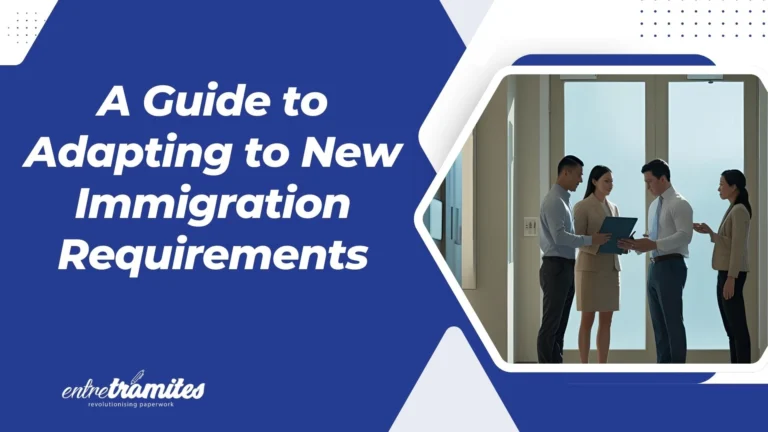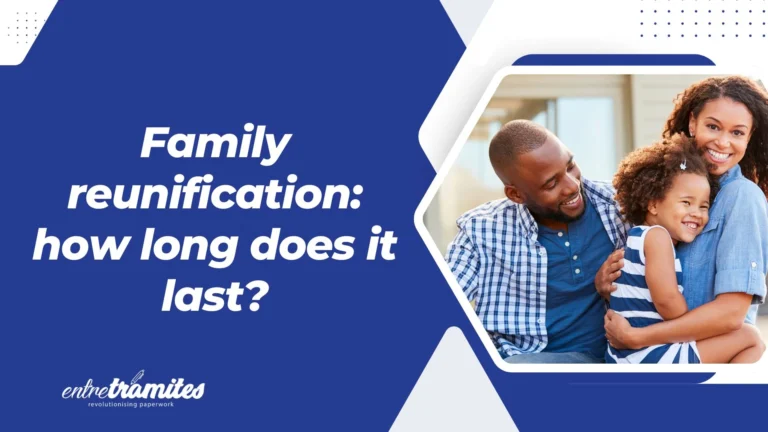With the recent reform of Spain’s Immigration Regulations, the requirements for living and working in the country have undergone significant changes. These updates, introduced by Royal Decree 629/2022 in Spanish Real Decreto 629/2022, affect both foreign nationals seeking to reside in Spain and the companies that employ them. This practical guide will help you adapt to the new rules by explaining the essential steps to ensure you comply with the law and take advantage of the new opportunities the reform provides.
Key Changes in the New Law
The reform aims to streamline the process of obtaining residence and work permits, as well as to promote the integration of immigrants into the Spanish labor market.
Among the most notable changes are:
- Work permits for students: International students can now work during their stay without having to change their immigration status.
- Family reunification: Requirements have been simplified for reuniting with family members already residing in Spain, promoting family integration.
- Entrepreneurial visas: It is easier to obtain a visa to create an innovative business in Spain.
These changes can be confusing if you are not well-versed in the new requirements. It is essential to understand the steps to follow to comply with them and take advantage of the benefits they offer.
Essential Steps to Navigate the New Immigration in Spain Rules
- Review your current situation and necessary permits. Before starting any procedure, it is important to analyze your current situation. If you already reside in Spain, check if your permit type is still valid under the new requirements. If you are applying for a residence or work permit for the first time, make sure you understand what type of visa or authorization you need based on your profile (worker, entrepreneur, student, etc.).
- Prepare the necessary documentation. The new regulations still require a series of key documents. Depending on the type of application, some of the common documents you will need to present are:
- Valid passport.
- Criminal record certificates.
- Proof of financial means.
- Medical insurance.
- Respect the established deadlines. One of the fundamental aspects of the new regulations is the establishment of clearer and tighter deadlines for the application and processing of permits. For most residence permits, the process should be completed in no more than six months. Make sure you comply with the established deadlines to avoid delays in your application.
- Stay on top of regulatory changes. Immigration in Spain is a constantly evolving field. It is advisable to stay updated and be aware of any new reforms that may affect residence, work, and family reunification requirements.
- Consider the help of a specialised advisor or lawyer. Given the complexity of the process, having the support of an immigration expert can make adapting to the new requirements much easier. A legal advisor can guide you through each step, ensuring your application is completed correctly and that all documentation is in order.
Frequently Asked Questions
What are the most common deadlines for immigration procedures? Deadlines vary by application type. For most residence permits, the processing time is six months. However, family reunification may take less time. It is important to check the specific deadlines for each case.
Can I work while applying for a residence permit? In certain cases, such as for students or entrepreneurs, part-time work is allowed while the residence or work application is being processed. Make sure to verify the conditions of your visa to confirm this possibility.
What documentation is needed for family reunification? Family reunification requires proof of a family relationship (such as birth or marriage certificates), evidence of sufficient financial means to support the family, and medical insurance for all family members to be reunited.
Adapting to the requirements of the new immigration regulations is essential to ensure that your residence and work in Spain are handled correctly. The reform offers new opportunities but also demands more rigorous compliance with the established deadlines and requirements. By following these steps, you can navigate the procedures successfully and take full advantage of the new regulations.
If you need personalized assistance, at Entre Trámites we offer specialized legal and administrative services for foreigners in Spain. You can contact us through this contact form for us to call you, or if you prefer, you can schedule a free consultation or write to us on WhatsApp.





